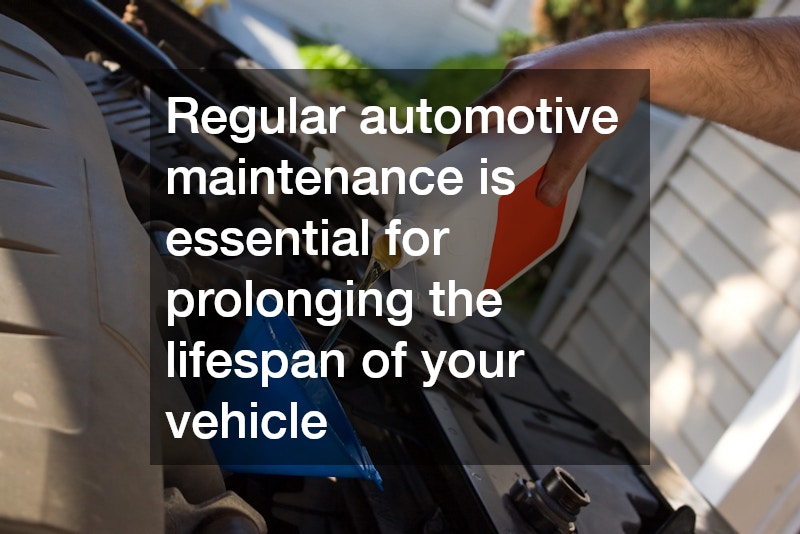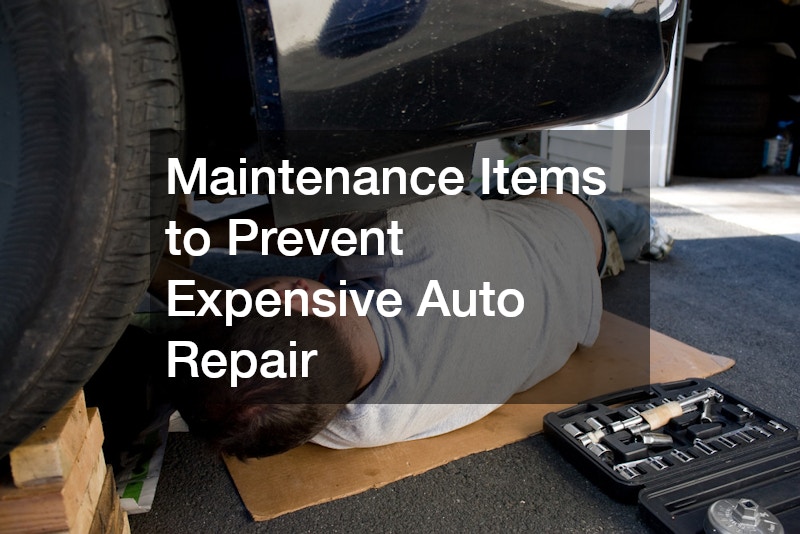Regular automotive maintenance is essential for prolonging the lifespan of your vehicle and preventing costly auto repair bills. Many repairs are avoidable if you take proactive steps with routine maintenance. Here are some key maintenance items that will keep your car in peak condition and help you avoid expensive auto repair.
Each process below will explain how it prevents damage and extends your vehicle’s longevity.
1. Regular Oil and Filter Changes
Engine oil lubricates the engine’s moving parts, reducing friction and preventing wear. Over time, however, oil breaks down and becomes contaminated with dirt, dust, and other particles. This buildup can clog components, especially in modern engines with variable valve timing. Neglecting regular oil changes allows contaminants to accumulate, which can damage expensive engine parts and lead to significant auto repair costs.
Process:
- Consult your vehicle’s manual for the recommended oil type (such as 10W-30) and frequency of changes.
- Conventional oil typically requires changing every 3,000 miles, while fully synthetic oil can last up to 8,000 miles.
- Replace the oil filter every time you change the oil to ensure the new oil stays clean.
How It Prevents Damage:
Changing the oil and filter regularly keeps the engine clean and well-lubricated, reducing friction that can lead to premature wear. Clean oil also protects components like variable valve timing cams, saving thousands in potential repairs.
2. Transmission Fluid Servicing
Transmission fluid lubricates the transmission and ensures smooth gear shifting. Over time, it can degrade and accumulate debris, leading to poor performance and eventual transmission failure. For most automatic transmissions, a fluid change every 30,000 miles is recommended, though some newer cars use synthetic fluid that lasts longer.
Process:
- If your car has a filter, replace it when you change the transmission fluid.
- Newer cars may have “sealed” transmissions that don’t require frequent servicing. Consult your vehicle’s manual or a professional to see if fluid replacement is necessary for your model.
How It Prevents Damage:
Fresh transmission fluid keeps the gears lubricated, reducing friction and preventing overheating. Proper maintenance avoids expensive auto repair by preventing transmission wear and extending the life of this crucial component.
3. Cooling System Maintenance
Your car’s cooling system regulates engine temperature and prevents overheating. The system uses coolant, which can break down over time and corrode internal components. Dirty coolant can clog the radiator, damage the water pump, or even cause the engine to overheat, resulting in costly repairs.
Process:
- Change conventional coolant every three years or every 30,000 miles.
- For long-lasting protection, consider using extended-life antifreeze, which lasts up to five years or 150,000 miles.
- Inspect the coolant level regularly and top it off as needed. If you notice leaks or a drop in coolant level, consult a professional.
How It Prevents Damage:
Replacing coolant prevents rust, scale buildup, and overheating, protecting the engine, radiator, and other cooling components. Clean coolant also protects sensitive electrical sensors in modern vehicles, helping you avoid significant auto repair expenses from overheating or electrical damage.
4. Battery Maintenance and Terminal Cleaning
A functioning battery is essential for starting your car and powering electrical systems. Battery terminals can corrode over time, which can impact electrical connections and performance. A weak or faulty battery may cause problems in modern vehicles’ computerized systems, potentially leading to costly repairs if left unchecked.
Process:
- Inspect the battery terminals periodically for signs of corrosion. Clean them with a wire brush if buildup is present.
- After cleaning, apply a battery terminal protection spray to prevent future corrosion.
- Have a mechanic perform a battery load test once or twice a year to check its strength and replace it if it’s weakening.
How It Prevents Damage:
Regular battery maintenance ensures stable voltage for the vehicle’s electronics and prevents computer malfunctions. Keeping the terminals clean improves the connection and protects electronic components, avoiding costly auto repair by preventing damage to your car’s electrical system.
By following these maintenance steps, you can prevent many common issues that lead to expensive auto repair. Routine maintenance, such as oil changes, transmission fluid servicing, and battery care, are simple processes that can have a big impact on your car’s longevity. Regular attention to these key areas keeps your vehicle running smoothly and efficiently, reducing the likelihood of costly repairs down the road.
.

